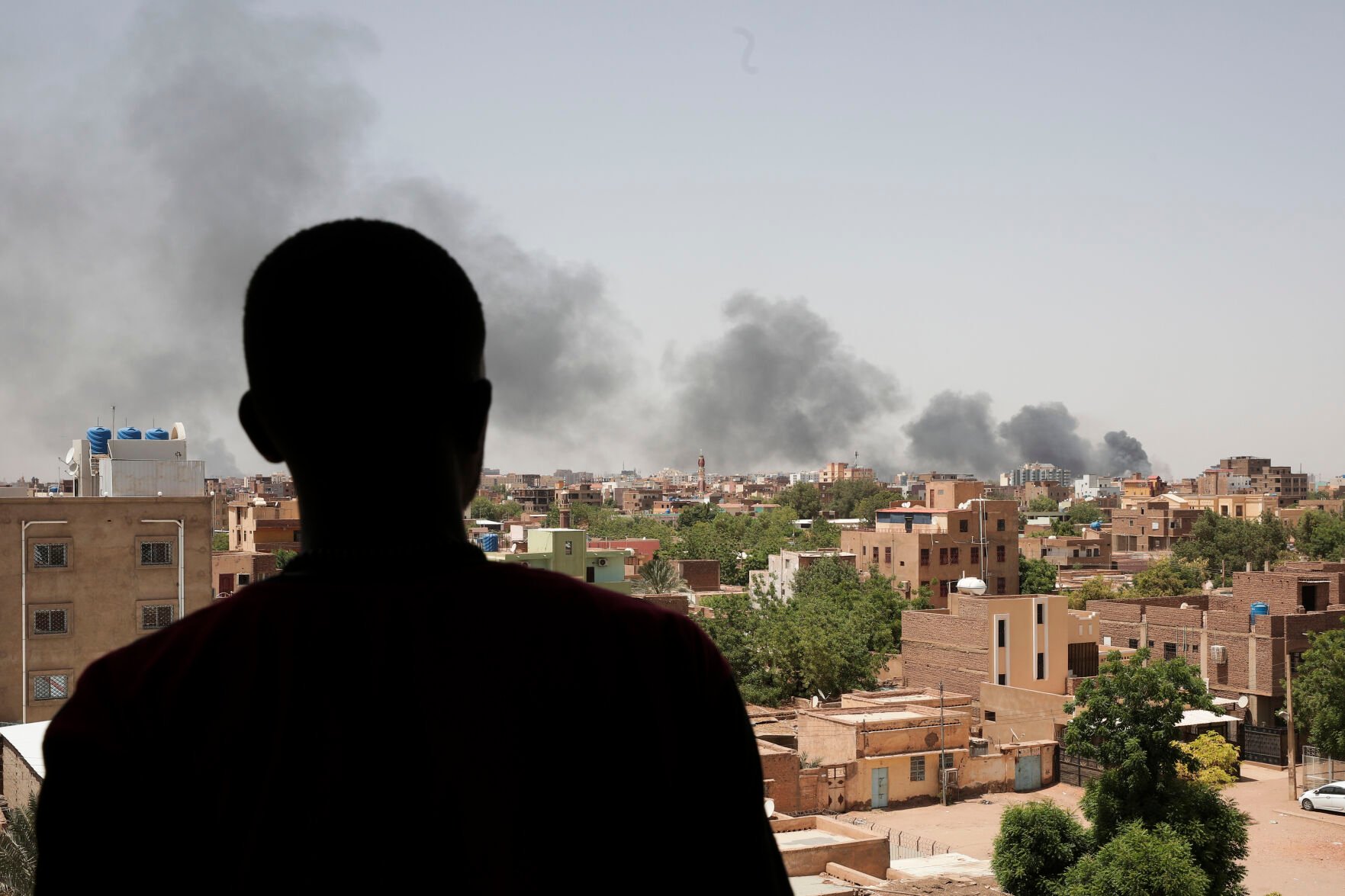US evacuates diplomats in Sudan amid fierce fighting
WASHINGTON — President Joe Biden said late Saturday that U.S. military completed the evacuation of U.S. Embassy personnel in Sudan and he called for an end to the “unconscionable” violence.
He thanked U.S. troops who carried out the mission, as Washington shuttered the U.S. mission in Khartoum indefinitely.
The staffers were airlifted to an undisclosed location in Ethiopia, according to two U.S. officials familiar with the mission, as fighting between two armed Sudanese rivals entered a second week.
“I am proud of the extraordinary commitment of our Embassy staff, who performed their duties with courage and professionalism and embodied America’s friendship and connection with the people of Sudan,” Biden said in a statement. “I am grateful for the unmatched skill of our service members who successfully brought them to safety.”
He also thanked Djibouti, Ethiopia and Saudi Arabia, which he said played a critical role in “the success of our operation.”
Biden ordered the embassy evacuation after a recommendation from his national security team, according to an official who spoke on condition of anonymity. The order was believed to apply to about 70 Americans.
According to the World Health Organization, the fighting killed more than 400 people since erupting April 15 between two factions whose leaders are vying for control over the country. The violence included an unprovoked attack on an American diplomatic convoy and numerous incidents in which foreign diplomats and aid workers were killed, injured or assaulted.
The White House said it has no plans for a government-coordinated evacuation of American citizens trapped in Sudan. An estimated 16,000 private U.S. citizens are registered with the embassy as being in the country, though the State Department cautioned that figure probably is inaccurate because there is no requirement for Americans to register or notify the embassy when they leave.
The embassy issued an alert earlier Saturday cautioning that “due to the uncertain security situation in Khartoum and closure of the airport, it is not currently safe to undertake a U.S. government-coordinated evacuation of private U.S. citizens.” The U.S. evacuation planning got underway in earnest Monday after the embassy convoy was attacked in Khartoum. The Pentagon confirmed Friday that U.S. troops were being moved to Camp Lemonnier in Djibouti ahead of a possible evacuation.
The Sudanese army said Saturday it was coordinating efforts to evacuate foreign citizens and diplomats on military aircraft.
Army chief Gen. Abdel Fattah Burhan said he would facilitate the evacuation of American, British, Chinese and French citizens and diplomats from Sudan after speaking with the leaders of several countries that requested help. Most major airports have become battlegrounds and movement out of the capital, Khartoum, is intensely dangerous.
Battles between the Sudanese army led by Burhan and a rival powerful paramilitary group rage in and around Khartoum, including in residential areas. Foreign countries struggled to repatriate their citizens — many trapped in their homes as food supplies dwindle.
The White House would not confirm the Sudanese military’s announcement. “We have made very clear to both sides that they are responsible for ensuring the protection of civilians and noncombatants,” the National Security Council said.
Saudi Arabia announced the successful repatriation of some of its citizens Saturday, sharing footage of Saudi nationals and other foreigners welcomed with chocolate and flowers as they stepped off an apparent evacuation ship at the Saudi port of Jeddah.
Burhan said the Saudi diplomats and nationals traveled by land to Port Sudan, the country’s main seaport on the Red Sea. He said Jordan’s diplomats would be evacuated in the same way.
Before it was closed, the U.S. Embassy warned it had “incomplete information about significant convoys departing Khartoum traveling towards Port Sudan” and the situation remained dangerous. “Traveling in any convoy is at your own risk,” it said.
Burhan told Saudi-owned Al Arabiya satellite channel on Saturday that flights in and out of Khartoum remained risky due to clashes. He claimed the military regained control over all the other airports in the country, except for one in the southwestern city of Nyala.
“We share the international community’s concern about foreign nationals,” he said.
The fighting, and collapse of three recent cease-fire attempts, dealt a blow to hopes for the country’s transition to a civilian-led democracy and raised concerns the chaos could draw in its neighbors, including Chad, Egypt and Libya.
Mohammed Hamdan Dagalo, chief of the paramilitary group fighting the army, known as the Rapid Support Forces, or RSF, claimed he would work toward “opening humanitarian corridors, to facilitate the movement of citizens and enable all countries to evacuate their nationals to safe places.”
The current explosion of violence came after Burhan and Dagalo fell out over a recent internationally brokered deal with democracy activists meant to incorporate the RSF into the military and eventually lead to civilian rule.
The rival generals rose to power after popular uprisings led to the ouster of Sudan’s longtime ruler, Omar al-Bashir, in 2019. Two years later, they joined forces to seize power in a coup that ousted the civilian leaders.

